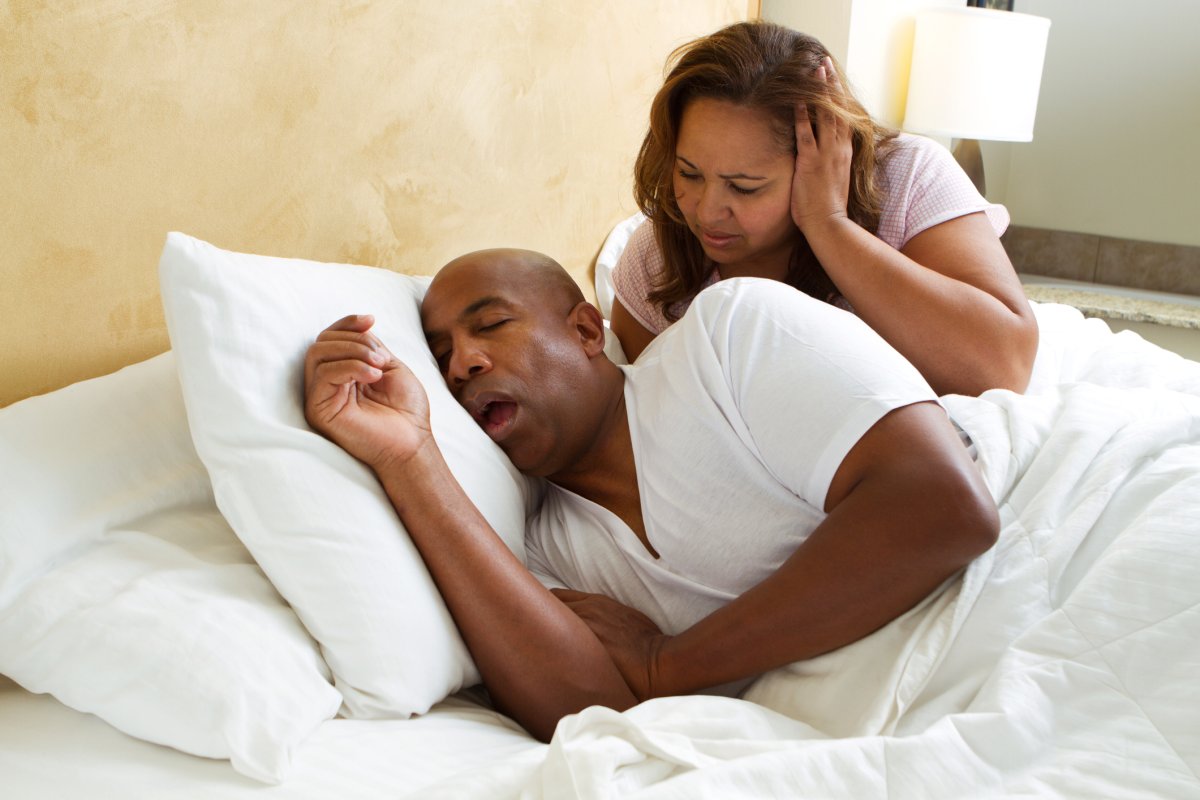It’s often unnoticeable for the person doing it, but it can be quite annoying for the person who has to sleep through it.

Snoring is a common condition that can affect any sex or age group, but it often progresses as people age. Dr. Les Priemer of Snoring & Sleep Apnea Therapy in Toronto, told Global News snoring is often a sign there is a disruption in the airwaves and while it isn’t always a serious medical condition, it could be the sign of something else.
READ MORE: Could your snoring have long-term effects on your health?
Check in with a professional first
Sleep apnea is a sleeping disorder you should be concerned about, he added, noting when we’re sound asleep, we often don’t notice any breathing difficulties.
Alanna McGinn, sleep consultant with Good Night Sleep Site, added the most common causes of snoring include enlarged tonsils or tongue, being overweight or having restricted airway passages (resulting in sleep apnea).
READ MORE: Babies’ sleep quality affects language outcomes

Get breaking National news
She added people who fall asleep at random times during the day, even though they get a significant amount of sleep overnight, should get a sleep test.
Your doctor will often recommend taking part in a sleep study, an experiment that allows professionals to see how you breathe and sleep throughout the night. Not only will they be able to pinpoint the quality of your sleep, but also the causes of your excessive snoring in the first place.
Treatment options
There are several treatment options for snoring that range from over-the-counter to surgical procedures.
Continuous positive airway pressure (or CPAP) is often needed for people with sleep apnea and there are machines that deliver a constant flow of air, the Canadian Lung Association noted.
“The CPAP machine creates enough pressure in your airway to hold the tissue open, so your airway doesn’t collapse,” the site noted. “CPAP is a treatment, not a cure. While you’re using CPAP, your sleep apnea symptoms stop. Your breathing and your sleep are healthy. If you stop using CPAP, your sleep apnea symptoms will come back. Your breathing and sleep will be interrupted again.”
Then there are over-the-counter options like nasal strips, spray or cones.
“A lot of the times these treatments can work, but they are not definite treatments.”
Priemer said you can also start making lifestyle changes — cut back on drinking alcohol before bed, change your sleeping positions or make a commitment to lose weight.
Other natural ways that experts mention could work include chewing sugar-free gum or even doing daily mouth and tongue exercises, Good Housekeeping magazine noted. “One workout that researchers found to be effective was pushing the tip of the tongue against the roof of the mouth and sliding the tongue backward. A second: Sucking the tongue upward against the roof of the mouth and pressing the entire tongue against the roof of the mouth.”
And of course, the more anecdotal methods of using essential oils or diffusers to reduce snoring are also commonly known.
The other person in the mix
Often the person who has to hear the snoring also suffers, especially if snoring disrupts their sleep. McGinn said if you are concerned about your partner’s snoring habits or notice them having difficulty breathing overnight, send them to a doctor’s office.
“Earplugs can work well, I just got fitted for custom earplugs,” she added. “Possibly sleeping in separate rooms may need to happen if neither partner is continuously not getting adequate sleep each night. White noise machines can also work to drown out the noise.”
READ MORE: A sleep divorce could save your marriage
And for Priemer, who has been treating sleeping conditions since the 1990s, he only sees it getting worse.
“As the population ages, roughly 20 per cent of it snores and a quarter of these people have sleep apnea,” he said. “Obesity is a contributing factor to snoring and sleep apnea, and with the population getting more obese, this becomes more frequent.”

.jpg?w=1040&quality=70&strip=all)







Comments